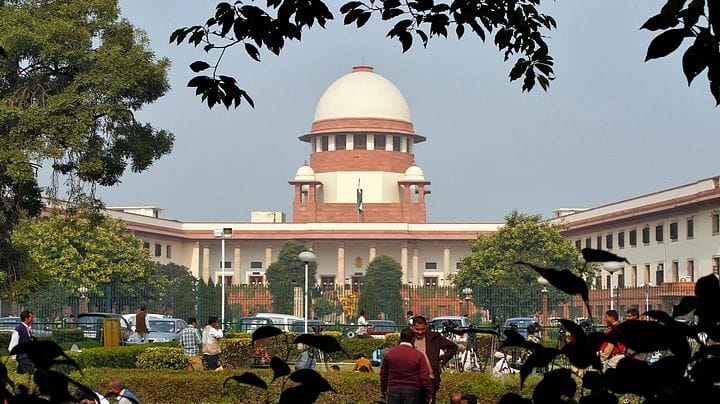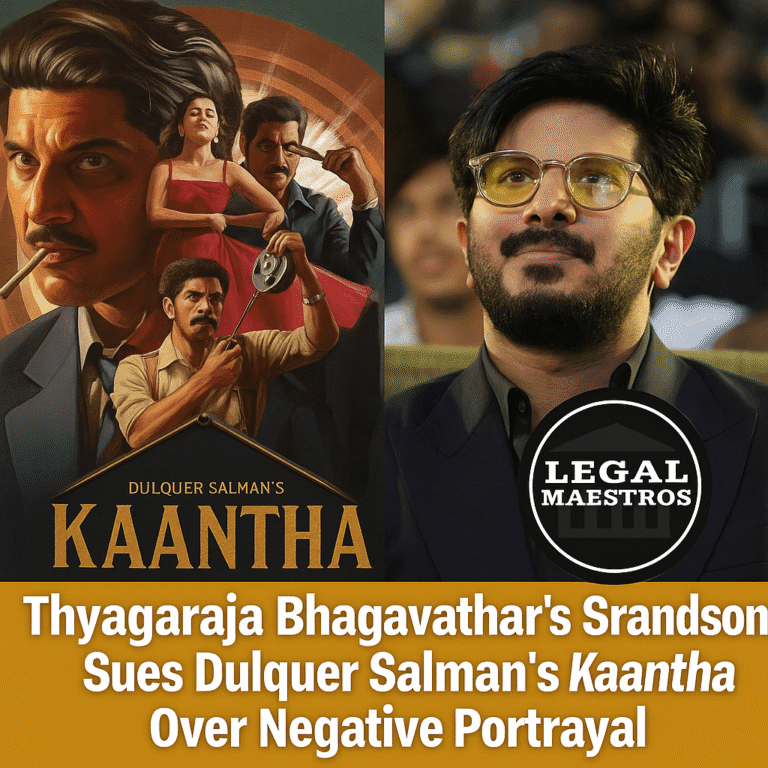
In a groundbreaking judicial reform that promises to reshape the hierarchical dynamics of Supreme Court practice, Chief Justice of India BR Gavai announced on Wednesday that designated senior advocates will be barred from mentioning cases for urgent listing in his court starting August 11, 2025. This landmark decision, aimed at democratizing legal practice at the apex court, marks a significant departure from traditional courtroom protocols and signals a new era of opportunities for junior lawyers.
A Bold Step Towards Inclusivity
The announcement came during Wednesday’s court proceedings when CJI Gavai declared, “There is a great demand that no matters should be mentioned by senior counsel(s).” His statement reflects a growing recognition within the judicial system that the current practice may inadvertently create barriers for emerging legal practitioners. The Chief Justice’s directive was clear and unequivocal: “From Monday, no senior counsel, I mean designated senior counsel, will be allowed to mention matters. Let juniors get an opportunity to do it.”
This decision represents more than just a procedural change; it embodies a philosophical shift towards creating a more egalitarian legal environment where merit and necessity, rather than seniority and designation, determine access to urgent judicial attention. The move has been particularly significant given that CJI Gavai had earlier reinstated the practice of oral mentioning for urgent listings after taking office on May 14, reversing his predecessor Justice Sanjiv Khanna’s system that required written applications via email or letters.
For any queries or to publish an article or post or advertisement on our platform, do call at +91 6377460764 or email us at contact@legalmaestros.com.
Understanding the Mentioning Process
The mentioning process is a crucial aspect of Supreme Court practice where lawyers request the court to list their matters for urgent hearing outside the regular roster. Traditionally, this process has been dominated by senior advocates who, by virtue of their designation and experience, often receive preferential treatment in having their matters heard. The process typically occurs at the beginning of each day’s proceedings before the CJI-led bench, where lawyers briefly present the urgency of their cases to secure out-of-turn listings.
This system, while efficient in many ways, has long been criticized for creating an implicit hierarchy that favors established practitioners over junior lawyers, regardless of the actual urgency or merit of the cases being presented. The new reform directly addresses this concern by ensuring that all lawyers, regardless of their designation status, have equal opportunity to present urgent matters before the court.
Immediate Response from the Legal Fraternity
The announcement has already begun generating significant discussion within legal circles. Senior advocate Abhishek Manu Singhvi, who was present in court when the announcement was made, responded positively to the initiative, stating that he had no objections “so long as it applies to all senior lawyers.” This measured response from a prominent senior advocate indicates a level of acceptance within the established legal community for reforms that promote greater inclusivity.
For any queries or to publish an article or post or advertisement on our platform, do call at +91 6377460764 or email us at contact@legalmaestros.com.
The Chief Justice was careful to clarify the scope of this reform, stating that “This will be practised at least in my court,” while leaving it to other Supreme Court judges to decide whether they wish to adopt similar practices in their respective courts. This approach allows for a gradual implementation of the reform while maintaining judicial autonomy across different benches.
Implications for Legal Practice
This reform carries profound implications for the practice of law at the Supreme Court level. For junior lawyers, it represents unprecedented access to direct judicial interaction and the opportunity to develop crucial skills in case presentation and urgent mentioning. The change is expected to:
Level the Playing Field: By removing the advantage that senior designation traditionally conferred in the mentioning process, the reform ensures that cases are evaluated purely on their merit and urgency rather than the status of the advocate presenting them.
For any queries or to publish an article or post or advertisement on our platform, do call at +91 6377460764 or email us at contact@legalmaestros.com.
Enhance Professional Development: Junior lawyers will now have direct opportunities to interact with the Chief Justice and present urgent matters, providing invaluable experience in high-stakes legal advocacy.
Promote Meritocracy: The reform reinforces the principle that legal arguments should be judged on their substance rather than the seniority of the advocate presenting them.
Encourage Innovation: With increased opportunities for participation, junior lawyers may bring fresh perspectives and innovative approaches to legal argumentation.
For any queries or to publish an article or post or advertisement on our platform, do call at +91 6377460764 or email us at contact@legalmaestros.com.
Historical Context and Broader Reform Agenda
This decision must be viewed within the broader context of ongoing reforms in the Indian judicial system. The Supreme Court has been increasingly focused on addressing issues of accessibility, efficiency, and democratization of legal practice. Recent months have seen various discussions about reforming the senior advocate designation process itself, with the court considering whether the current system adequately serves the interests of justice and professional development.
The mentioning ban represents part of a larger conversation about breaking down traditional barriers that may inadvertently limit opportunities for emerging legal professionals. CJI Gavai’s decision aligns with growing calls from various quarters of the legal profession for more inclusive practices that recognize talent and merit over established hierarchies.
Challenges and Considerations
While the reform has been largely welcomed, it also presents certain practical challenges. Senior advocates often possess extensive experience in quickly identifying and articulating the urgency of matters, having handled similar cases over decades of practice. Their exclusion from the mentioning process may initially lead to:
For any queries or to publish an article or post or advertisement on our platform, do call at +91 6377460764 or email us at contact@legalmaestros.com.
Learning Curve Adjustments: Junior lawyers may need time to develop the skills and confidence required for effective case mentioning before the Chief Justice.
Case Preparation Requirements: Law firms and legal teams may need to restructure their approach to urgent matter preparation, ensuring junior lawyers are adequately briefed and prepared.
Potential Delays: The initial implementation period may see some inefficiencies as the system adapts to new participants in the mentioning process.
For any queries or to publish an article or post or advertisement on our platform, do call at +91 6377460764 or email us at contact@legalmaestros.com.
However, these challenges are likely to be temporary, and the long-term benefits of the reform are expected to far outweigh any initial adjustments required.
Looking Forward: A New Era of Legal Practice
CJI Gavai’s announcement represents more than just a procedural change; it signals a commitment to nurturing the next generation of legal professionals while maintaining the highest standards of judicial practice. The reform acknowledges that true legal excellence emerges from providing equal opportunities for all practitioners to demonstrate their capabilities.
The decision also reflects the Chief Justice’s broader vision for a more accessible and democratic judicial system. By ensuring that urgent matters are presented based on their intrinsic merit rather than the status of the advocate, the Supreme Court is taking a significant step towards reinforcing public confidence in the impartiality and fairness of the judicial process.
For any queries or to publish an article or post or advertisement on our platform, do call at +91 6377460764 or email us at contact@legalmaestros.com.
As the legal community prepares for the implementation of this reform on August 11, the broader implications of this decision will likely influence discussions about further democratization of legal practice. Other judges in the Supreme Court, as well as High Courts across the country, may consider similar measures that promote inclusivity while maintaining the efficiency and dignity of judicial proceedings.
Conclusion
Chief Justice Gavai’s decision to bar senior advocates from mentioning cases represents a watershed moment in the evolution of Supreme Court practice. By prioritizing opportunity over hierarchy and merit over designation, this reform promises to create a more inclusive legal environment where talent can flourish regardless of seniority status.
The success of this initiative will largely depend on how effectively the legal community adapts to these changes and embraces the spirit of inclusivity that underpins the reform. As junior lawyers prepare to take on greater responsibilities in case mentioning, and as senior advocates adjust to the new framework, the Supreme Court is poised to witness a transformation that could serve as a model for judicial systems worldwide.
For any queries or to publish an article or post or advertisement on our platform, do call at +91 6377460764 or email us at contact@legalmaestros.com.
This bold step by CJI Gavai not only addresses long-standing concerns about accessibility in legal practice but also demonstrates the judiciary’s commitment to continuous reform and improvement. As the implementation date approaches, the legal fraternity watches with anticipation as the Supreme Court embarks on this significant journey toward a more democratic and inclusive system of justice delivery.
The reform stands as a testament to the principle that in the pursuit of justice, opportunity should be available to all qualified practitioners, and that the strength of the legal system lies not in maintaining traditional hierarchies but in fostering an environment where excellence can emerge from every level of professional practice.
For any queries or to publish an article or post or advertisement on our platform, do call at +91 6377460764 or email us at contact@legalmaestros.com.


![JOB POST: Junior Associate at ASM Law Chambers, Jaipur [Freshers]](https://legalmaestros.com/wp-content/uploads/2025/11/Gemini_Generated_Image_8wrxer8wrxer8wrx-768x708.png)

